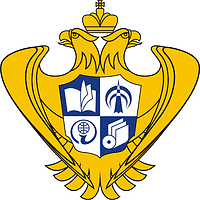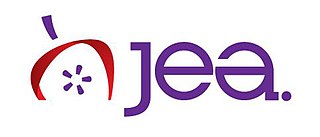Related Research Articles
The Association for Computing Machinery (ACM) is a US-based international learned society for computing. It was founded in 1947 and is the world's largest scientific and educational computing society. The ACM is a non-profit professional membership group, claiming nearly 110,000 student and professional members as of 2022. Its headquarters are in New York City.

Communication studies or communication science is an academic discipline that deals with processes of human communication and behavior, patterns of communication in interpersonal relationships, social interactions and communication in different cultures. Communication is commonly defined as giving, receiving or exchanging ideas, information, signals or messages through appropriate media, enabling individuals or groups to persuade, to seek information, to give information or to express emotions effectively. Communication studies is a social science that uses various methods of empirical investigation and critical analysis to develop a body of knowledge that encompasses a range of topics, from face-to-face conversation at a level of individual agency and interaction to social and cultural communication systems at a macro level.

Texas A&M University–Commerce is a public university in Commerce, Texas. With an enrollment of over 12,000 students as of fall 2017, the university is the third-largest institution in the Texas A&M University System. Founded in 1889, the institution is also the fifth-oldest state university or college in the State of Texas.

WETA-TV is the primary PBS member television station in Washington, D.C. Owned by the Greater Washington Educational Telecommunications Association, it is a sister station to NPR member WETA. The two outlets share studios in nearby Arlington County, Virginia; WETA-TV's transmitter is located in the Tenleytown neighborhood in Northwest Washington.
A virtual university provides higher education programs through electronic media, typically the Internet. Some are bricks-and-mortar institutions that provide online learning as part of their extended university courses while others solely offer online courses. They are regarded as a form of distance education. The goal of virtual universities is to provide access to the part of the population who would not be able to attend a physical campus, for reasons such as distance—in which students live too far from a physical campus to attend regular classes; and the need for flexibility—some students need the flexibility to study at home whenever it is convenient for them to do so.
Christopher H. Sterling is an American media historian. Sterling is professor of media and public affairs at The George Washington University where he has taught since 1982. Author of numerous books on electronic media and telecommunications plus a host of research and bibliographic articles, his primary research interests center upon the history and policy development of electronic media and telecommunications. He regularly teaches courses in media law and federal regulation and society. He was an acting chair in the early 1990s and served as associate dean for graduate studies in arts and sciences from 1994 to 2001.

WGCS is an adult album alternative-formatted broadcast radio station. The station is licensed to Goshen, Indiana and serves Goshen, Elkhart, and South Bend in Indiana. WGCS is owned by Goshen College and operated under their Goshen College Broadcasting Corporation licensee.
The Grady College of Journalism and Mass Communication is a constituent college of the University of Georgia in Athens, Georgia, United States. Established in 1915, Grady College offers undergraduate degrees in journalism, advertising, public relations, and entertainment and media studies, and master's and doctoral programs of study. Grady has consistently been ranked among the top schools of journalism education and research in the U.S.
The International Literacy Association (ILA), formerly the International Reading Association (IRA), is an international global advocacy and member professional organization that was created in 1956 to improve reading instruction, facilitate dialogue about research on reading, and encourage the habit of reading across the globe.

The Federal Agency for Press and Mass Communications (FAPMC) was a regulatory state agency within the hierarchy of the Russian Government.

Music education in the United States is implemented in many schools as a form of modern-day teaching. Music education is a field of study that focuses on the teaching and application of music in the classroom. As this addition to the curriculum progresses, the effects and implications to this course of study are being widely debated, especially the factors pertaining to. Researchers are able to follow its progression from its earliest known application within the field of academics.
The Online News Association (ONA), founded in 1999, is a 501(c)(3) non-profit organization located in Washington D.C., United States. It is the world's largest association of digital journalists, with more than 2,000 members.

Dodge City Community College is a public community college in Dodge City, Kansas, United States.

WLRA or sometimes called WLRA Radio, or WLRA-FM, is a college radio station broadcasting a Variety format. Licensed to Lockport, Illinois, USA, the station serves the Chicago/greater Joliet region. The station is licensed to and owned by Lewis University. Lewis University is a private Roman Catholic and Lasallian university with an enrollment of around 6,800 students. The station is a member of the National Association of Broadcasters, Illinois Broadcasters Association, and Broadcast Education Association.

The US Journalism Education Association (JEA) is a US-based national organization for teachers and advisers of journalism. National organizations of the same name exist in Australia and New Zealand.
Stuart N. Brotman is an American government policymaker; university professor; management consultant; lawyer; author and editorial adviser; and non-profit organization executive. He has taught students from 42 countries in six separate disciplines — Communications, Journalism, Business, Law, International Relations and Public Policy. He also has advised private and public sector clients in more than 30 countries in five continents.

Cyprus International University is an English-language private university in Northern Cyprus. It is located in the capital, North Nicosia and was established in 1997.
Alpha Epsilon Rho (ΑΕΡ) is a scholastic honor society recognizing academic achievement among students in the field of electronic media. The honor society is managed as part of the larger Broadcast Education Association (BEA).
Korea Broadcast Advertising Corporation (KOBACO) is the only media representative in South Korea operating as an agency that represents every terrestrial broadcasting company of South Korea for their broadcast advertising sales. KOBACO was established in 1981 and it was re-established as a government-funded public media representative in May 2012.

The Society for the Teaching of Psychology (STP) is Division 2 of the American Psychological Association. It is an academic society that promotes effective pedagogy while providing supports for teachers of psychology at all levels. Although it is one of the divisions of the American Psychological Association, it does not require its members to join the APA. The STP provides access to peer-reviewed teaching resources, such as course syllabi and e-books, free of charge to the general public through its website. Some sections of the website require STP membership to gain access.
References
- ↑ BEA: About Us Archived April 29, 2011, at the Wayback Machine
- ↑ BEA website Archived April 23, 2011, at the Wayback Machine
- ↑ "Interest Divisions". Broadcast Education Association. Retrieved June 16, 2017.
- ↑ "Publications". Broadcast Education Association. 2017. Retrieved June 16, 2017.
- ↑ "Acceptance Rates - Traditional Research and Creative Scholarship". Broadcast Education Association. 2017. Retrieved June 16, 2017.
- ↑ Sterling, Kittross, Christopher, John (1990). Stay Tuned: A Concise History of American Broadcasting. Wadsworth Publishing Company. p. 365. ISBN 0-534-11905-0.